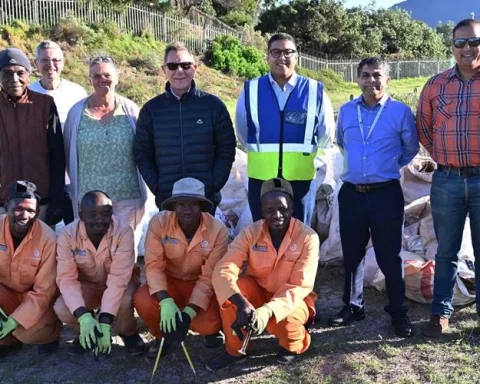The upcoming release of Norman ‘Afzal’ Simons, also known as the Station Strangler, has caused alarm and controversy in the Mitchells Plain community. In 1995, Simons was convicted for the kidnapping and murder of 10-year-old Elroy van Rooyen. He is scheduled for parole on 20 July 2023. However, many residents still recall the terror they felt during his crimes. The Mitchells Plain Community Policing Forum (CPF) demands an apology from Simons if he wishes to be reintegrated into the community.
History of the Station Strangler
Between 1986 and 1994, 22 boys’ bodies were discovered in Mitchells Plain, leading to Simons’ arrest in 1994 on suspicion of being a serial killer. Despite only being convicted for one crime, the community remains traumatized by the past events, with adults who were at school at the time reliving the fear that they experienced during the killings.
The Community’s Response
Norman Jantjies, chair of the Mitchells Plain CPF, has been an active participant in the search for the missing boys and providing support to the community. He states that Simons must apologize for the fear and trauma they endured if he wishes to be reintegrated into the community. Jantjies further indicates that rehabilitation cannot be discussed without a confession from Simons regarding the crimes he committed.
The Department of Correctional Services’ Response
The Department of Correctional Services (DCS) has arranged a public meeting at the Lentegeur Civic Centre to discuss the matter further, encouraging open communication and giving the community a platform to voice their concerns. Franchesca Walker, a Parow ward councillor, acknowledges the community’s unease and emphasizes the need for transparency and dialogue between the DCS, the CPF, and the community at large.
The Community’s Concerns
Residents fear for their safety and question the efficiency of Simons’ rehabilitation, with concerns over whether he will re-offend. The lack of information regarding his residence in Parow has only amplified these fears, resulting in a pressing need for transparency and dialogue between the DCS, the CPF, and the community at large.
The Complexities of Reintegration
The case of Norman ‘Afzal’ Simons highlights the complexities surrounding the reintegration of notorious criminals into society. The community’s demand for an apology is a significant step in addressing the lingering trauma experienced by the people of Mitchells Plain. Furthermore, the public meeting arranged by the DCS demonstrates the importance of open communication and collaboration between the authorities and the community to address their concerns and foster a sense of security.
As the date of Simons’ parole approaches, the story of the Station Strangler serves as a reminder of the challenges of criminal rehabilitation and reintegration. The Mitchells Plain case sets a precedent for future discussions regarding similar situations, emphasizing the importance of acknowledging the pain and fear experienced by the community and providing a platform for dialogue, understanding, and healing.












